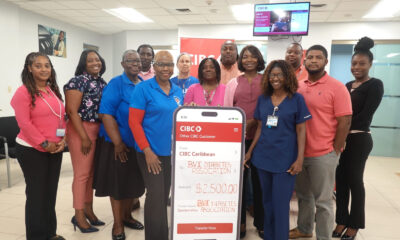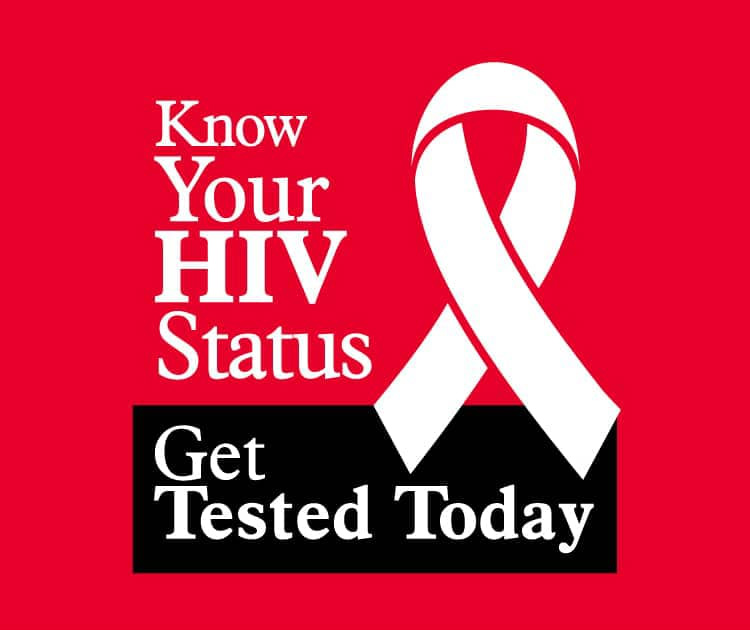Business
OneMart’s Christmas Initiative Delights Customers with Over $60,000 in Prizes

Business
CIBC Caribbean Donates $2,500 to BVI Diabetes Association During Staff Health Initiative
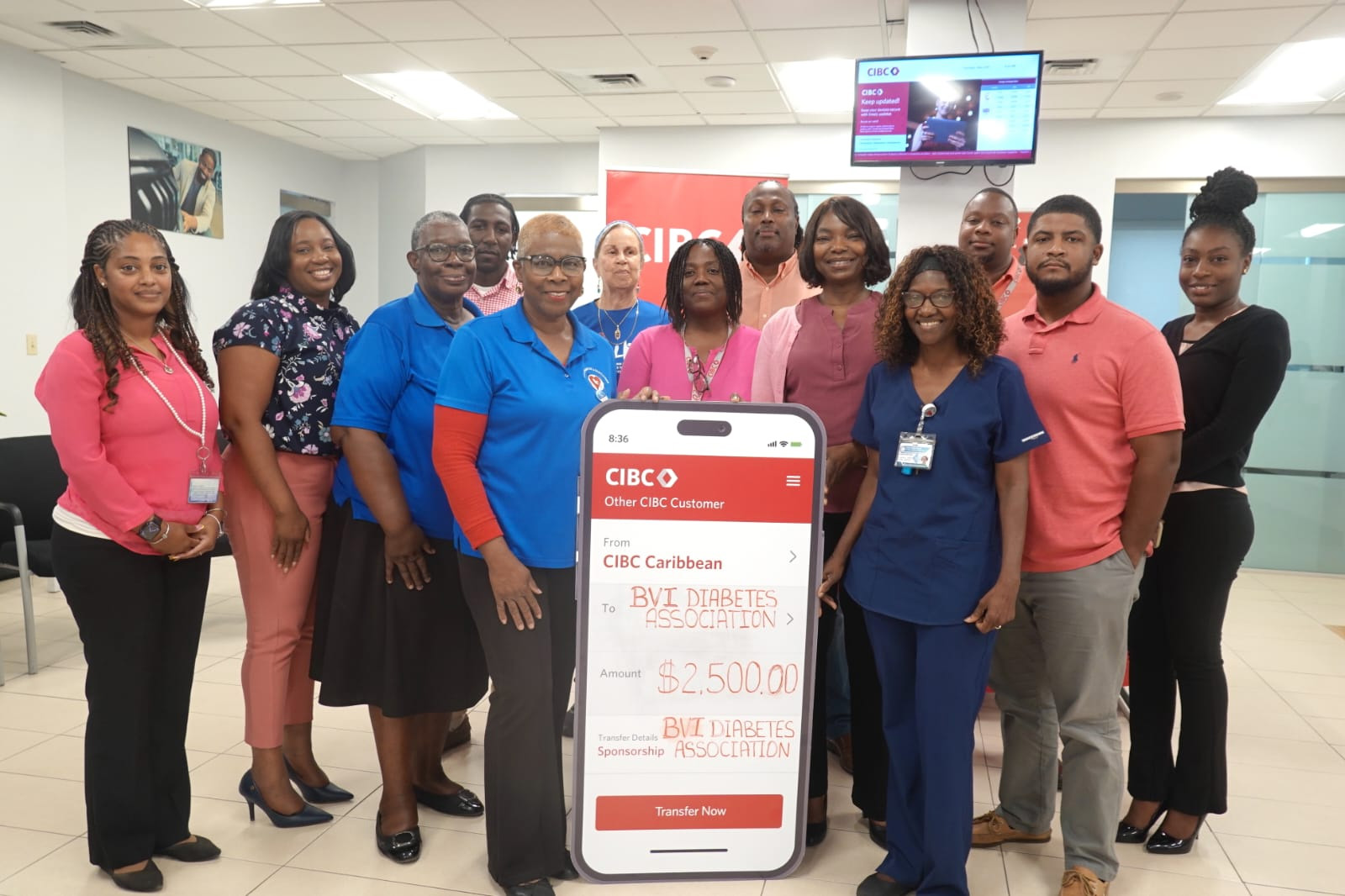
CIBC Caribbean has made a $2,500 contribution to the British Virgin Islands Diabetes Association (BVIDA) as part of its ongoing efforts to support health awareness and community wellness across the region.
The donation was officially presented at the bank’s Road Town branch during its Staff Appreciation Week in May. Vernecia Holder, Head of International Corporate Banking at CIBC Caribbean, handed over the cheque to Roselia James-Dawson, Resource Manager and Certified Diabetes Educator at BVIDA.
The presentation followed a staff-focused educational session on diabetes prevention and management led by Nurse Magdelina Jean-Louis, DSc. H. Ed. The session underscored key issues such as early detection, lifestyle modifications, and disease control—topics that are especially relevant in the Caribbean, where rates of non-communicable diseases continue to rise.
“At CIBC Caribbean, we recognize the vital role of education and community support in addressing chronic diseases such as diabetes,” said Holder. “We are honored to contribute to the BVI Diabetes Association’s efforts to empower individuals with knowledge and resources to manage their health effectively.”
In accepting the donation, James-Dawson said the funds would aid in expanding the Association’s outreach and education efforts.
“This donation will significantly enhance our outreach and education programs, allowing us to better serve those affected by diabetes in the British Virgin Islands,” she stated. “We are deeply grateful for CIBC Caribbean’s partnership in this important cause.”
CIBC Caribbean has pledged to continue supporting local organisations and initiatives that focus on community development, health, and wellness.
Enquiries about BVIDA’s programs can be directed to bvidiabetes@gmail.com.
Business
Caribbean Shipping Secures Exemption from U.S. Port Fees on Chinese-Built Vessels
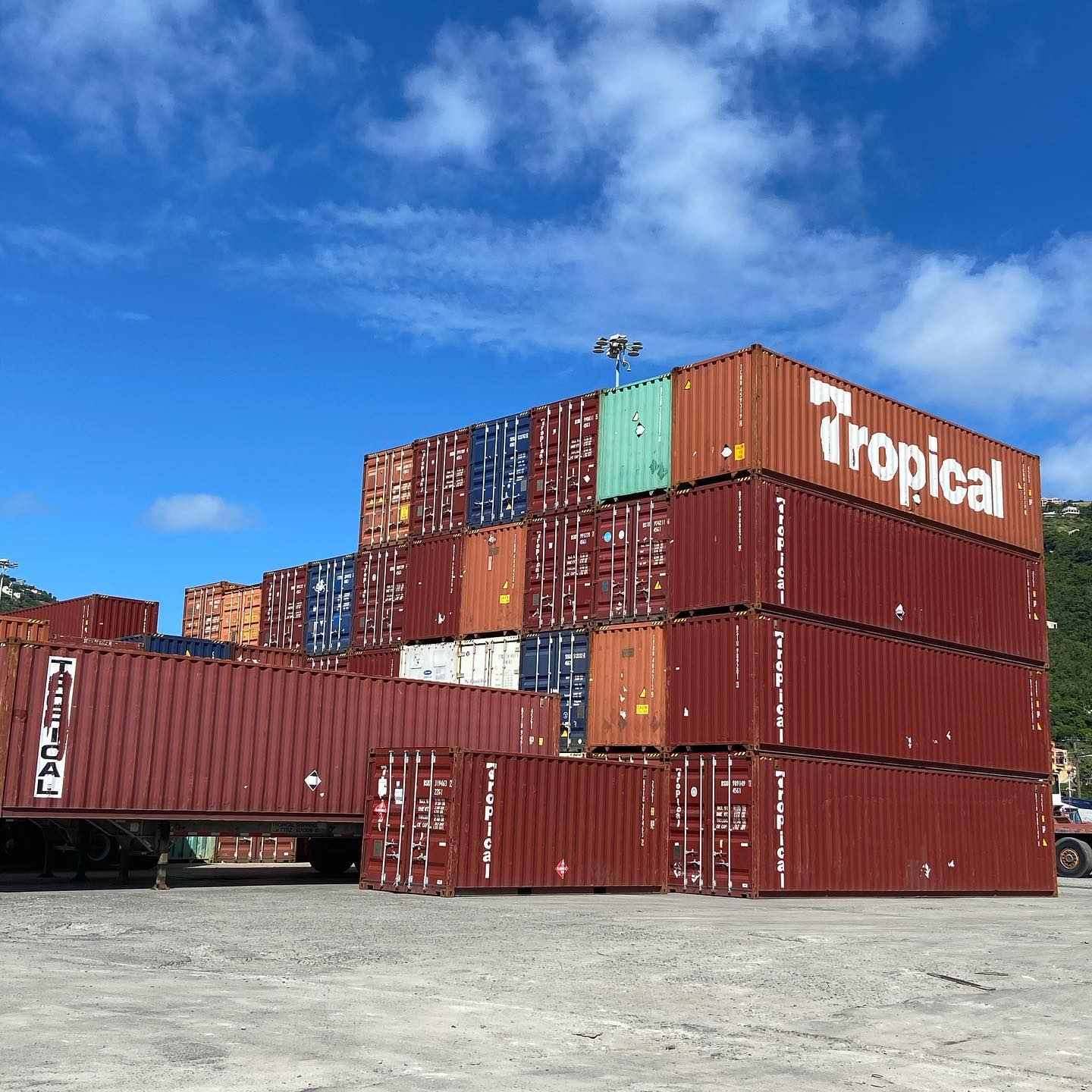
The Office of the United States Trade Representative (USTR) has exempted Caribbean shipping routes from newly proposed port fees on Chinese-built vessels. This decision follows concerted advocacy by the Caribbean Private Sector Organisation (CPSO) and regional stakeholders, who warned that the fees could have devastating economic consequences for the Caribbean.
The USTR’s initial proposal aimed to impose fees of up to $1.5 million per port call on vessels constructed in China, as part of a broader strategy to counter China’s dominance in global shipbuilding and bolster the U.S. maritime industry. However, the policy faced immediate backlash from Caribbean nations, where a significant portion of shipping relies on Chinese-built vessels.
Dr. Patrick Antoine, CEO and Technical Director of the CPSO, testified at a USTR public hearing, emphasizing that over 90% of CARICOM’s trade in goods depends on maritime transport. He warned that the proposed fees could lead to a 60% increase in shipping costs to and from the Caribbean, severely impacting economies where more than 50% of the ships are Chinese-built.
The potential repercussions were particularly alarming for smaller Caribbean states like Antigua and Barbuda, Dominica, Grenada, St. Lucia, and St. Vincent and the Grenadines, which rely heavily on short-sea shipping routes serviced by Chinese-built vessels. Prime Minister Gaston Browne of Antigua and Barbuda expressed concern that shipping a container could increase by $3,000 to $4,000, leading to an 8–10% rise in consumer prices and pushing inflation rates to potentially 12–14%.
In response to these concerns, the USTR revised its policy to exempt ships operating between U.S. domestic routes, the Caribbean, U.S. territories, and Great Lakes ports from the new fees. This adjustment aims to prevent inflation, supply chain disruptions, and surging trade costs in the region.
The exemption has been met with relief across the Caribbean. Dr. Antoine expressed gratitude to the USTR for recognizing the unique challenges faced by Caribbean economies and for taking steps to safeguard regional trade stability.
While the exemption provides immediate relief, regional leaders and industry stakeholders continue to monitor the situation closely. They advocate for long-term strategies to enhance the resilience of Caribbean supply chains and reduce dependency on external factors that could disrupt trade.
Business
BVI Braces for Ripple Effects as U.S. Stock Market Sheds $5 Trillion
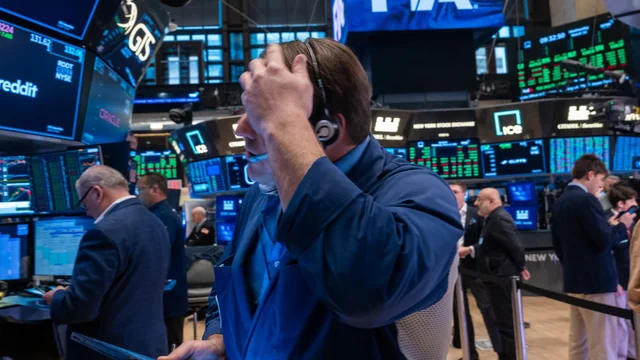
In just three weeks, the U.S. stock market has lost a staggering $5 trillion in value, a downturn that could have significant implications for the British Virgin Islands (BVI), where the U.S. dollar is the official currency. As economic uncertainty grips the global financial system, concerns are mounting over how this sharp decline might impact the BVI’s economy, particularly in the areas of tourism, offshore financial services, and overall consumer confidence.
With the U.S. being the primary source of visitors to the BVI, any financial squeeze on American households could lead to a reduction in travel plans. A weaker U.S. stock market often means tighter budgets for vacationers, which could result in lower visitor numbers, reduced hotel bookings, and fewer yacht charters—critical sectors for the territory’s economy.
As one of the Caribbean’s leading offshore financial hubs, the BVI is deeply connected to global markets. A drop in stock values can shake investor confidence, potentially leading to slower financial transactions, reduced incorporations, and a cautious approach from high-net-worth individuals who use BVI-based structures for wealth management.
With the BVI using the U.S. dollar, economic shocks in the U.S. can quickly affect the cost of goods and services in the territory. A weaker U.S. market could lead to fluctuations in inflation, making imports more expensive. For a territory that relies heavily on imported goods—from food supplies to construction materials—this could put additional pressure on businesses and consumers.
The BVI government will likely keep a close watch on these developments, as a prolonged U.S. market downturn could impact tax revenues, business activity, and overall economic confidence. Policymakers may need to explore ways to strengthen economic resilience, whether through increased regional trade, diversification efforts, or measures to support local businesses in uncertain times.
While the full impact of this financial slide remains to be seen, one thing is certain: the BVI, like many other U.S. dollar-dependent economies, is paying close attention to Wall Street’s turbulence and preparing for potential economic headwinds.
-
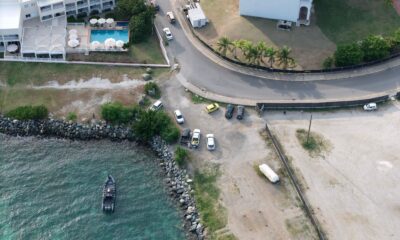
 Uncategorized8 hours ago
Uncategorized8 hours agoBody Recovered Near Maria’s by the Sea Hotel
-
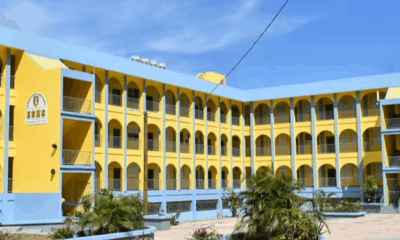
 Education3 days ago
Education3 days agoBVI Records Over 85 Student Suspensions in Early 2025
-

 Uncategorized1 week ago
Uncategorized1 week agoBritish Virgin Islands Regulators Move to Wind Down Bank of Asia (BVI) Limited
-

 Entertainment5 days ago
Entertainment5 days agoK’Meeya Chung and Dakarai Wheatley-Adams Crowned Miss and Mr. HLSCC 2025
-

 Entertainment1 week ago
Entertainment1 week agoNeil Frett Named Honouree as 71st Virgin Islands Emancipation Festival Officially Launched
-

 Local News14 hours ago
Local News14 hours agoU.S. Travel Ban on Haiti and Other Nations Sparks Concern Across the Caribbean
-
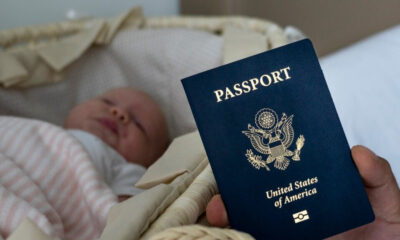
 International14 hours ago
International14 hours agoU.S. Embassy Issues Warning on ‘Birth Tourism’
-
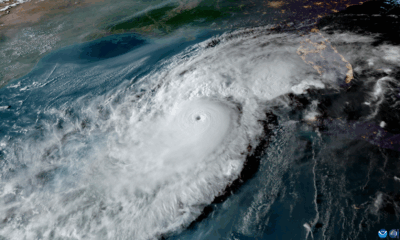
 Local News6 days ago
Local News6 days agoCaribbean Braces for Active 2025 Hurricane Season









